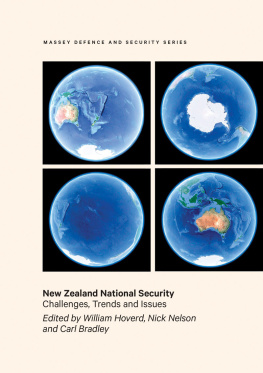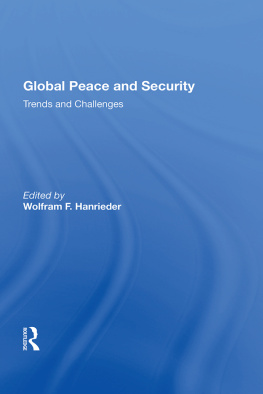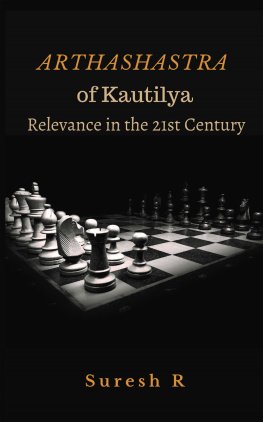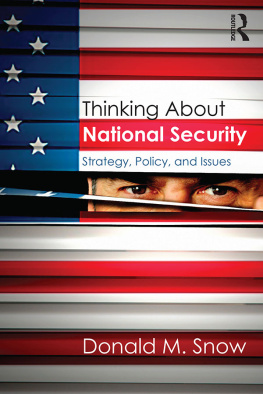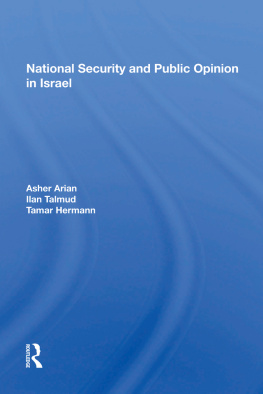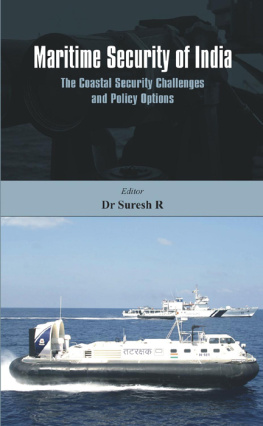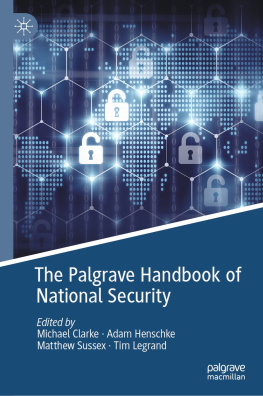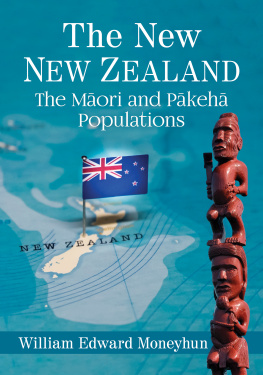Massey Defence and Security Series is an imprint of Massey University Press
First published in 2017 by Massey University Press
Private Bag 102904, North Shore Mail Centre, Auckland 0745, New Zealand
www.masseypress.ac.nz
Text copyright individual contributors, 2017
Design by Open Lab. Layout by Kate Barraclough
The moral right of the authors has been asserted
All rights reserved. Except as provided by the Copyright Act 1994, no part of this book may be reproduced, stored in or introduced into a retrieval system or transmitted in any form or by any means (electronic, mechanical, photocopying, recording or otherwise) without the prior written permission of both the copyright owner(s) and the publisher.
A catalogue record for this book is available from the National Library of New Zealand
Printed and bound in New Zealand by Printlink
ISBN: 978-0-9941407-0-8
CONTENTS
Foreword
Carolyn Tremain
Paul Spoonley
Preface
Nick Nelson
Abbreviations
Introduction
William Hoverd
Part 1: International, regional and subregional security trends
1. Security and strategy in the Asia-Pacific: Challenges and opportunities for New Zealand
Rouben Azizian
2. Challenging geopolitical seascapes: Southeast Asia and the big powers in the South China Sea
Aileen San Pablo-Baviera
3. New Zealand and the Pacific Islands region: Change, challenges and new ideas
Anna Powles
4. Global cyber threats and the way ahead
Tang Lan
5. Rethinking national security: A new conceptual framework?
Negar Partow
Part 2: New Zealands emerging security challenges
6. The New Zealand national security system
Howard Broad
7. International economic security: The New Zealand perspective
Stephen Hoadley
8. Border narratives and practices: A window into economic security
Germana Nicklin
9. Air surveillance capability and the security of the exclusive economic zone
Brian Oliver and John Moremon
10. New Zealand Special Operations Forces: Subtle and strategic effect in the whole-of-government approach to New Zealands national security
Miriam Wharton and Rhys Ball
Part 3: Issues in New Zealand security
11. New Zealands national security coordination
Terry Johanson
12. Facing up! The legal and definitional challenges of New Zealands approach to terrorism
John Battersby
13. Outlaw motorcycle clubs, organised crime and New Zealand national security
Carl Bradley
14. Differentiating between New Zealands two security studies research agendas
William Hoverd
15. New Zealand security intellectuals: Critics or courtesans?
Damien Rogers
Conclusion
Nick Nelson
Bibliography
About the contributors
Acknowledgements
FOREWORD
What we in New Zealand think of as security has changed. It is no longer the sole domain of our defence forces to protect New Zealand and its citizens way of life. Lives and livelihoods around the globe are increasingly connected through the internet, telecommunications systems and complicated trade supply chains. These connections are great they improve our lives immensely but they also connect us to people and groups (both state and non-state actors) who threaten our security via cyber attacks, terrorism, transnational crime and human trafficking. Other global threats, such as the complex, interrelated effects of global warming, environmental disasters, pandemics and the depletion of food stocks now impact us nationally and globally.
The speed of trade, technology and travel flows makes it increasingly difficult to detect risks at our border. Our geographical location once kept us safe; however, as global power dynamics shift and change, so too do traditional notions of New Zealands border and national security. We now need a deeper understanding of security, and of how we can maintain the New Zealand way of life in the face of the changing shape of our world within New Zealand, the Pacific and across the world. The government is experienced in responding to some of these threats and is able to plan and prepare for them. Other threats require a wider collection of partnerships and solutions in order to develop new ways of responding to developing threats, not just nationally but also globally.
This unique book is timely and important. It grew out of a national security conference and workshop that involved academia, government officials and industry representatives. It is, I hope, the start of an enduring critical dialogue about national security between these parties as well as in the wider New Zealand public.
The book offers fresh insights into some of the challenges, trends and issues directly relevant to New Zealands national security. It situates our national security within our geographical region and amid the political and economic interests that affect New Zealand. It also engages with and challenges our national security policies, capabilities and practices, and reveals aspects of our national security that we may not be thinking enough about, such as ethical considerations or how legislation shapes our behaviours.
Clearly, there is more to say, to question and to explore about New Zealands national security direction, what we want it to be and how to create the future we want for our mokopuna. For that we need to involve the whole of our society. This book opens that ongoing conversation a conversation for the twenty-first century.
Carolyn Tremain
Chief Executive and Comptroller of New Zealand Customs
In June 2005, I had just left my London hotel to start my journey to Heathrow to meet my wife. As I arrived at the tube station, they were closing the steel gates. Nobody could tell me what was going on and there was no cell phone coverage. I eventually caught a bus to the airport an airport that was in lockdown, as much as it could be given that international flights continued to arrive and depart.
Later, much later, we were to discover the reason for Londons chaos acts of domestic terrorism involving bombs on Londons transport system. As anyone who has experienced these extreme forms of terrorism involving violence directed at civilians will know, it is deeply upsetting for everyone involved, whether as individuals, communities or those organisations that are responsible for public health and safety. It undermines individual and collective ontological security, and invokes the reset button. Why? Who? What should happen to avoid further attacks?
The 2005 London bombing was only one of a series of incidents that have escalated the interest in a range of security issues for countries such as the United Kingdom and the United States. The terrorism that was associated with groups like the Irish Republican Army has now morphed into Islamic terrorism. Moreover, there are new vectors, new candidates (both as targets and as perpetrators) and new technologies. Terrorism is both international and domestic, both traditional (bombs) and new (cyber threats), and seemingly endless in terms of the possibilities.




